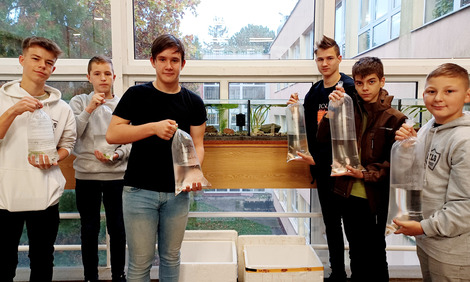In Mosonmagyaróvár, a town in Hungary, there is a high school dedicated to a very special project - a conservation breeding programme for endangered goodeid fish.
Mark Liziczai, head of this special project, has been maintaining more than 35 aquariums and several terrariums here for 10 years now, together with his students. The focus, however, is clearly on breeding the endangered goodeid species.
The school was the first high school in Hungary to promote bilingual education (German - Hungarian). The contact was established by the curator of the Haus des Meeres in Vienna Michael Köck and our field representative Sven Roehl. The Haus des Meeres has also previously bred and reintroduced extinct goodeids.
In consultation with Sven, JBL put together a package for this great project and handed it over in person. Sven was able to get a first-hand impression on site and was given a small tour of the school's laboratory.
We are pleased to support the commitment of Mark and his students and look forward to continuing our work with them going forward.
